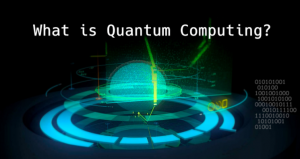
The following represents key elements of Quantum computing which needs to be emphasized during learning stages:
- Understanding of Bits and Qubits
- Fundamentals of Linear Algebra
- Quantum mechanics principles
- Quantum computation models
- Quantum Factoring
- Complexity theory
- Search algorithms
- Quantum computing applications
These topics can form part of syllabus if you are planning to design a course on Quantum computing.
Understanding Qubits vs Bits
Coming from a traditional classical computing background, it would be important to understand some of the following:
- What are Qubits?
- How does Qubit relates to Bits?
- Introduction to Superposition and Entanglement concepts
- Qubits examples
Linear Algebra Fundamentals
Given the state space of a quantum system is described in terms of a vector space, It is important to understand linear algebra concepts of some of the following in relation to vectors:
- Vector spaces
- Basis of vector space
- Inner, outer and tensor products
- Linear, Unitary, Normal and Hermition operators
- Matrices
- Norms
- Eigenvalues
- Adjoints
Quantum Mechanics Principles
The following are some of key quantum mechanics principles which can be used for describing the behavior of a physical system.
- Quantum state can be defined using a state space: Any physical system can be associated with a state space. The system is completely described at any given point in time by its state vector. A closed system is described by a unit vector in a complex inner product space.
- Quantum state evolves with time: The state of a closed quantum system at time t1 is related to the another state at time t2 by a unitary operator which depends only on t1 and t2. The evolution of a closed system in a fixed time interval is described by a unitary transform.
- Quantum state can be measured: A measurement on a quantum system has some set M of outcomes. Quantum measurements are described by a collection {Pm : m ∈ M} of measurement operators.
- State space of composite physical system can be measured: The state space of a composite physical system is the tensor product of the state spaces of the individual component physical systems.
Quantum Computation Models
The following concepts need to be understood in relation with models for quantum computing:
- Quantum Circuits: In quantum information theory, a quantum circuit is a model for quantum computation in which a computation is a sequence of quantum gates, which are reversible transformations on a quantum mechanical analog of an n-bit register. Read further details on Wikipedia page for quantum circuits
- Quantum Algorithms: In quantum computing, a quantum algorithm is an algorithm which runs on a realistic model of quantum computation. Read further details on Wikipedia page on Quantum Algorithms
- N-Gates: Different types of Gate and related operations
- One qubit gate (Pauli gate, Hadamard gate)
- 2-qubit gate (Controlled Not)
- 3-qubit gate (Toffoli gate)
Quantum Computing Applications
There should be emphasis on explaining quantum computing using some of the example applications. One could choose some of the following examples:
- Quantum cryptography
- Quantum teleportation
- Superdense coding
- The Watermelon Effect: When Green Metrics Lie - January 25, 2026
- Coefficient of Variation in Regression Modelling: Example - November 9, 2025
- Chunking Strategies for RAG with Examples - November 2, 2025

very good.
I want a syllabus in some of significant university in world.
can you help me?